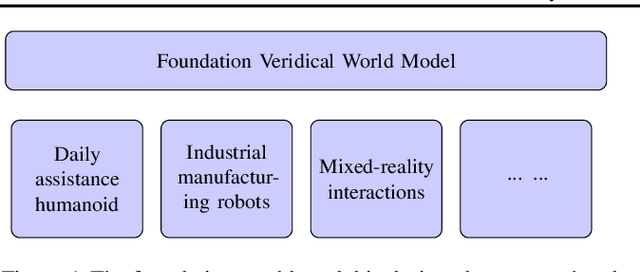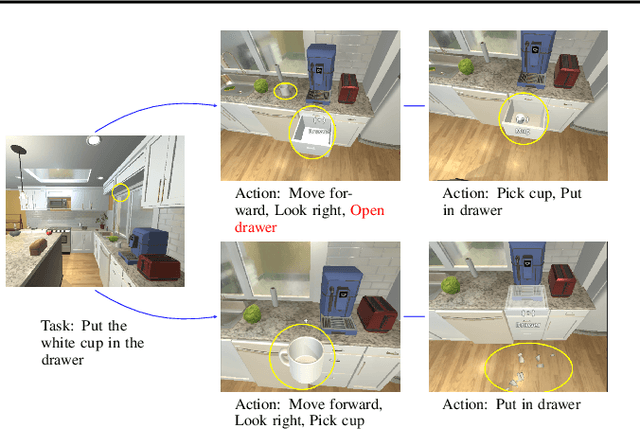Ade Famoti
Position Paper: Agent AI Towards a Holistic Intelligence
Feb 28, 2024Abstract:Recent advancements in large foundation models have remarkably enhanced our understanding of sensory information in open-world environments. In leveraging the power of foundation models, it is crucial for AI research to pivot away from excessive reductionism and toward an emphasis on systems that function as cohesive wholes. Specifically, we emphasize developing Agent AI -- an embodied system that integrates large foundation models into agent actions. The emerging field of Agent AI spans a wide range of existing embodied and agent-based multimodal interactions, including robotics, gaming, and healthcare systems, etc. In this paper, we propose a novel large action model to achieve embodied intelligent behavior, the Agent Foundation Model. On top of this idea, we discuss how agent AI exhibits remarkable capabilities across a variety of domains and tasks, challenging our understanding of learning and cognition. Furthermore, we discuss the potential of Agent AI from an interdisciplinary perspective, underscoring AI cognition and consciousness within scientific discourse. We believe that those discussions serve as a basis for future research directions and encourage broader societal engagement.
An Interactive Agent Foundation Model
Feb 08, 2024



Abstract:The development of artificial intelligence systems is transitioning from creating static, task-specific models to dynamic, agent-based systems capable of performing well in a wide range of applications. We propose an Interactive Agent Foundation Model that uses a novel multi-task agent training paradigm for training AI agents across a wide range of domains, datasets, and tasks. Our training paradigm unifies diverse pre-training strategies, including visual masked auto-encoders, language modeling, and next-action prediction, enabling a versatile and adaptable AI framework. We demonstrate the performance of our framework across three separate domains -- Robotics, Gaming AI, and Healthcare. Our model demonstrates its ability to generate meaningful and contextually relevant outputs in each area. The strength of our approach lies in its generality, leveraging a variety of data sources such as robotics sequences, gameplay data, large-scale video datasets, and textual information for effective multimodal and multi-task learning. Our approach provides a promising avenue for developing generalist, action-taking, multimodal systems.
The Essential Role of Causality in Foundation World Models for Embodied AI
Feb 06, 2024

Abstract:Recent advances in foundation models, especially in large multi-modal models and conversational agents, have ignited interest in the potential of generally capable embodied agents. Such agents would require the ability to perform new tasks in many different real-world environments. However, current foundation models fail to accurately model physical interactions with the real world thus not sufficient for Embodied AI. The study of causality lends itself to the construction of veridical world models, which are crucial for accurately predicting the outcomes of possible interactions. This paper focuses on the prospects of building foundation world models for the upcoming generation of embodied agents and presents a novel viewpoint on the significance of causality within these. We posit that integrating causal considerations is vital to facilitate meaningful physical interactions with the world. Finally, we demystify misconceptions about causality in this context and present our outlook for future research.
 Add to Chrome
Add to Chrome Add to Firefox
Add to Firefox Add to Edge
Add to Edge